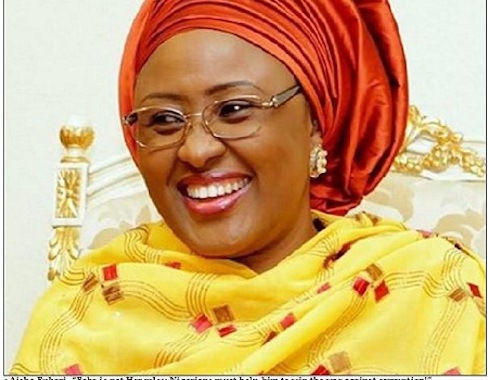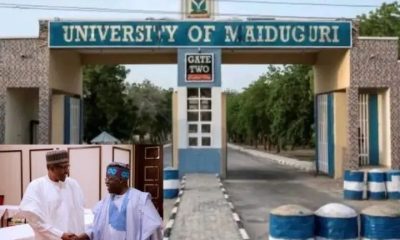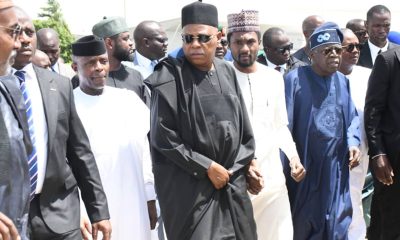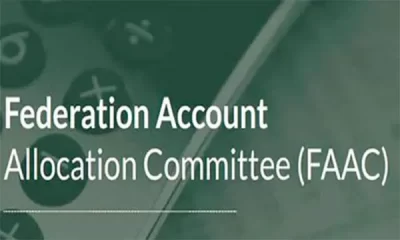NEWS
Buhari’s 2021 Performance Scorecard -Lai Mohammed
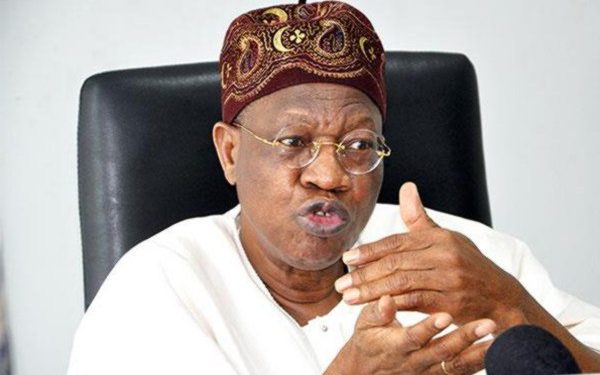
“Gentlemen, good morning, and thanks for honouring our invitation to this press conference, which in line with our tradition, we have called to brief you on the achievements of the Buhari Administration in 2021. In view of the long list of achievements and time constraints, we will go straight into the highlights and then provide you with a fuller list.
“Let me admit straightaway that the year has not been devoid of challenges.
For the outgoing year in particular, the major challenge has been that of insecurity. In spite of this and the usual economic challenges, especially the dwindling resources available to the government, the Administration has availed itself creditably, as we will be demonstrating shortly.“As I said in my introductory remarks, our biggest challenge in the outgoing year is in the area of security. Despite the enormity of the challenge, our military has continued to live up to their billing.
We owe them a debt of gratitude for their patriotism and sacrifice. We just can’t appreciate them enough, as you will soon see when I break down their achievements in the year under review.”
“To keep our country safe, the Armed Forces of Nigeria (AFN) has set up various operations across the country. These include the Joint Task Force (JTF) North East, tagged Operation HADIN KAI covering the North East region; the JTF SS, tagged Operation DELTA SAFE covering the South South region; the JTF NW, known as Operation HADARIN DAJI covering the North West region; Operation SAFE HAVEN covering Plateau, parts of Kaduna and Bauchi States; Operation WHIRL STROKE covering Benue, Nasarawa and Taraba States; JTF SW, referred to as Operation AWATSE and covering Lagos and Ogun States; Operation THUNDER STRIKE covering Abuja-Kaduna Highway and Operation WHIRL PUNCH covering parts of Kaduna State.
“Gentlemen, in the North East Zone under Operation HADIN KAI, a combination of kinetic and non-kinetic operations, coupled with a review of strategies, led to the neutralisation of over 1000 terrorists, rescue of 2000 civilians and the surrender of over 22,000 terrorists including their families. Many arms and ammunition were also recovered. This is in addition to destruction of several IED/bomb making factories of the ISWAP/BHT. Under Operation HADARIN DAJI in the North West, the conduct of offensive clearance operations, raids and air operations resulted in the neutralisation of about 427 bandits, arrest of 257 bandits, rescue of 897 civilians and recovery of 3,087 livestock.
“Similarly, Operation WHIRL PUNCH covering parts of Kaduna neutralised about 215 bandits, arrested 133 bandits, rescued 296 civilians and recovered 136 livestock, while Operation THUNDER STRIKE neutralised 36 bandits, arrested 74, rescued 296 civilians and recovery of 3,087 livestock.
Similarly, Operation WHIRL PUNCH covering parts of Kaduna neutralised about 215 bandits, arrested 133 bandits, rescued 296 civilians and recovered 136 livestock, while Operation THUNDER STRIKE neutralised 36 bandits, arrested 74, rescued 296 civilians and recovered 136 livestock.
In the North Central, raids and clearance operations conducted by Operation SAFE HAVEN neutralised 91 criminal elements, arrested 155 suspects, rescued 159 civilians and recovered 3,259 livestock.
“For its part, Operation WHIRL STROKE neutralised 158 criminals, arrested 151 suspects and rescued 183 civilians. Operation
DELTA SAFE in the South-South destroyed about 1,520 illegal refineries, confiscated 5,315 storage facilities and impounded 617 boats, amongst other items. Additionally, about 74,297,425 litres of Dual Purpose Kerosene (DPK), 41,971,693 litres of crude oil and 88,350 litres of PMS were recovered.
Furthermore, 174 trucks and 13 vessels were impounded while 755 illegal oil bunkerers were arrested and 153 assorted weapons recovered.
In the South West, patrols and clearance operations by troops of Operation AWATSE led to the arrest of 46 persons for various forms of criminalities while several vehicles, jerricans, motorcycles and electricity generators used for illegal bunkering were seized..
“The effectiveness of the military was enhanced by the leadership provided by President Muhammadu Buhari and the unwavering commitment of the armed forces and its leadership. The procurement of modern platforms for the armed forces has also gone a long way in raising the level of their operational readiness and efficiency, in addition to boosting their capabilities.
“During the period under review, the Nigerian Army procured 160 MRAPS, 150 trucks and 60 APCs to improve its equipment holding. Various kits were equally provided for troops. This is in addition to the provision of accommodation for troops and the recruitment of over 10,000 personnel into the Army.
“The Nigerian Navy (NN), for its part, commissioned the FALCON EYE Maritime Domain Awareness Capability, the third locally-built Seaward Defence Boat, one helicopter, 4 inshore patrol boats and 90 Rigid Hull Inflatable Boats. Over 1,500 personnel were recruited into the Navy during the year. The Nigerian Air Force (NAF) took delivery of 12 Super Tucanos and 3 JF-17 Thunder Fighter Aircraft and other platforms with which it has conducted several Air interdictions, provided close air support to ground troops and destroyed several illegal structures and equipment belonging to terrorists, bandits and other criminal elements.
“The Armed Forces of Nigeria has also contributed immensely to International peace and security efforts with its robust participation in the United Nations Multidimensional Integrated Stabilisation Mission in Mali (MINUSMA) and the regional initiative, the ECOWAS Military Intervention in Gambia (ECOMIG). The Nigerian military’s continued participation in these Missions has ensured their viability and sustenance towards achieving their military and political goals.
“Overall, the good news is that the military, in spite of its achievements, is not resting on its oars. The Military has assured that it is also poised, in fulfilment of its constitutional duties, to address the myriad of evolving contemporary threats, particularly as the 2023 elections draw nearer.
“Still on the fight against insecurity, the implementation of the community policing initiative of the current administration has led to the training of 25,000 constabularies in several police colleges
across the country. The successful officers who were trained on basic police duties, modern intelligence gathering techniques, rule of law, etc. were deployed to their Local Governments of Origin to aid in intelligence gathering and improve police visibility in their communities.
“Also, in an effort to improve the police/citizens ratio, 418 Cadet officers of regular course 3 were successfully graduated in June 2021 and deployed into the operational asset of the Nigeria Police Force. Through the Police Trust Fund, 200 Buffalo branded vehicles, bulletproof vest, protective helmets, drugs, and medical equipment as well as arms and ammunition, riot control equipment, and combat equipment were procured for the Police Special Weapon and Tactical Squad (SWAT). The Ministry of Police Affairs has also entered into a contract agreement for the supply of police Anti Riot Equipment with Poly Technology of China through a Government-to-Government arrangement at a cost of 44 million U.S. Dollars. These equipment will go a long way in boosting the capacity of the police to control civil unrest in the most efficient and civil manner.”
On the Economy, he said, “The recovery of the economy remained on a steady path throughout the year 2021. As you are aware, gentlemen, many countries around the world face unprecedented challenges, starting from 2020, as a result of the COVID-19 pandemic and Nigeria is no exception.
“The Nigerian economy was hit by the pandemic in mid-2020, and the economic disruptions led to a recession. The poor performance of the economy during the COVID-19 era affected output growth, trade, household welfare and livelihood.
However, this led to a quick response by the federal government with the rolling out of effective fiscal and monetary policies as well as health-related policies intended to curb the spread of the pandemic and mitigate the negative impact of the pandemic on the economy. This has yielded considerable results. For example, the country’s domestic growth in the first three quarters of 2021 was positive, recording real GDP of 0.51 percent in Q1, 5.01 percent in Q2 and 4.03 percent in Q3 2021.
“This was an improvement from a declining performance in the first three quarters of 2020 (which led to economic recession) at 1.87 percent in Q1, -6.10 percent in Q2 and -3.62 percent in Q3 2020. Nevertheless, the fourth quarter 2020 recorded a slight improvement of 0.11 percent, ushering in positive growth rates in the three quarters of 2021. This economic performance in 2021 shows a steady improvement in growth over the last three quarters of 2020, and this can be attributed to government policies and strategies such as the Economic Sustainability Plan; the N500 billion COVID-19 Crisis Intervention Fund etc.
“In the oil sector, real growth shows poorer performance in 2021, recording 2.21% (year-on-year) in Q1 2021, -12.65% in Q2 2021 and –10.73% in Q3 2021, from stronger growth of 5.06% in Q1 2020, -6.63% in Q2 2020, and -13.89% in Q3 2020. However, oil production in million barrel per day continued to decline in 2021, from 2.07mbpd in Q1 2020,1.81mbpd in Q2 2020, 1.67mbpd in Q3 2020 to 1.72mbpd in Q1 2021, 1.61mbpd in Q2 2021 and 1.57mbpd in Q3 2021. Non-oil sector indicated better performance of 0.79% in Q1 2021, 6.74% in Q2 2021 and 5.44% in Q3 2021, compared to 1.55% in Q1 2020, -6.05% in Q2 2020, and -2.51% in Q3 2020.
“In Foreign Trade, Nigeria witnessed dwindling performance in 2020, arising from trade restrictions on accounts of COVID-19 pandemic. Disruptions of trading activities driven by the pandemic
further weakened the balance of trade witnessed in Q4 2019 in the subsequent quarters.
“Consequently, total imports in the first three quarters of 2021 rose by 57.13%, from N13.97 in the corresponding quarters of 2020 to N21.95 trillion. Similarly, total exports grew by
40.62%, which was N13.12 trillion in the first three quarters of 2021, compared to N9.33trillion in the corresponding period, an indication of improved trading activities although with a deficit position. Over the same period crude oil export improved considerably at N10.03 trillion, compared to N6.92 trillion, showing a growth rate of 44.93%, while Non-oil exports grew by 21.17% – from N1.19trillion to N1.44trillion over the same period.
“Inflation rate has continued to decline on a year-on-year basis since April 2021 when 18.12% was recorded. Looking at the trend, a declining rate was recorded from 17.93% in May to 17.01% in August, 15.99% in October and 15.40% November 2021.
“It is projected that proper implementation of the proposed 2022 project of N17.13 trillion, and Medium-Term Expenditure Framework & Fiscal Strategy Paper 2022-2024 are likely to improve the performance of the economy.. Also, judicious implementation of the Petroleum Industry Act will likely improve oil production/sales stability; relatively high oil prices
will enhance revenue performance and budget implementation, while strengthening security will improve output growth of the economy.
On the oil and gas sector, Mohammed said, “Undoubtedly one of the greatest achievements of the Administration in 2021, and indeed in the past several decades, was recorded in the oil and gas sector, a sector very critical to the nation’s economic well-being.”
NEWS
UCare, ECOWAS Extend Lifeline to Displaced Families in Abagana Camp

By David Torough, Abuja
UCare Nigeria, with support from the ECOWAS Peace Fund, on Friday expanded its humanitarian pilot programme to the Abagana Internally Displaced Persons (IDP) camp in Makurdi Local Government Area of Benue State.
The initiative, which began at Ichwa camp, is designed to provide both health and non-health support across three camps.
According to UCare’s Benue State Team Lead, Mr.
Terna Nyityo, the intervention targets 1,000 individuals in each camp with medical services, dignity kits for adolescents, delivery kits for pregnant women, solar-powered boreholes, safe drinking water, and toilets.He added that members of surrounding host communities, who are also burdened by displacement, are included in the programme.
Nyityo noted that although the camp’s population had reduced as some displaced persons attempted to return to farming, renewed attacks were driving many back into the facility. “We are recording more people in the camp again,” he explained.
Commissioning the newly installed borehole and toilets on behalf of the partners, Abagana camp manager and BSEMA representative, Ms. Shipinen Unande, described the intervention as “a massive development” that would ease water supply challenges and improve sanitation.
However, she expressed concerns over deteriorating shelters, food shortages, lack of farmland, and the absence of essential drugs at the camp’s pharmacy.
According to her, some families are forced to sleep under staircases while others dig up tree roots for firewood.
Unande further appealed for scholarships and skill-acquisition programmes to empower young people in the camp, saying: “We have vibrant youths who can work if given the opportunity.”
Also speaking, the camp chairman, Mr. Azende Festus, lamented worsening living conditions caused by insect infestations affecting many households.
Beyond infrastructure, UCare also distributed mosquito nets, dignity kits, and mama kits, and conducted medical outreach for children, pregnant women, and breastfeeding mothers.
The ECOWAS-supported initiative aims to reach 3,000 displaced persons across three camps in Benue State by the end of August, providing health care, safe water and sanitation facilities, nutritional supplements for children, and other essential humanitarian aid.
NEWS
Julius Berger Joins Forces With FRIN, NCF to Plant 20,000 Trees at FCT Army Cantonment

By Mike Odiakose, Abuja
In a landmark move towards environmental sustainability, engineering construction company, Julius Berger Nigeria Plc, in partnership with the Forest Research Institute of Nigeria (FRIN) and the Nigerian Conservation Foundation (NCF) has successfully carried out a major tree-planting exercise at the Muhammadu Buhari Cantonment, Abuja.
The initiative, which saw the planting of over 20,000 indigenous tree seedlings, marked a significant contribution to Nigeria’s fight against deforestation, climate change, and biodiversity loss.
It also reaffirmed Julius Berger’s broader commitment to responsible environmental stewardship and sustainable development.
The effort, which was a collaborative blend of expertise and shared vision, saw the FRIN leading the technical aspects of species selection and ecological suitability while NCF brought in decades of conservation experience and community engagement, with Julius Berger providing the funding, and coordination support.
Speaking at the event, Dean of the Faculty, General Research at the Nigerian Army Heritage and Future Centre, Major General J.Y. Maina, representing the Chief of Army Staff, Lt. Gen. O.O. Oluyede underscored the strategic importance of environmental protection in national security
He said, “today’s exercise is a practical demonstration of our shared recognition that environmental protection is inseparable from national security. Climate change, desertification, and environmental degradation pose long-term threats to our country’s stability. Tree planting is not just an ecological necessity; it is a strategic investment in our collective future.”
Even as he praised Julius Berger’s leadership and commitment, calling the collaboration “a shining example of how the military, government institutions, and the private sector can work together for sustainable development.”
The Zonal Coordinator, Nigeria Conservation Foundation, Garba Boyi, who ably represented the Director-General, Dr. Joseph Onoja of the NCF said the Foundation is a non-governmental organization, adding that the organisation’s focus and mandate is actually in the area of biodiversity conservation and sustainable development in Nigeria.
“For us to achieve that, we have developed or come up with an initiative, which we call it Green Recovery Nigeria. This is an initiative that is meant actually to salvage the situation in which our vegetation happens to be. Because going by the statistics, we have less than 10% of our vegetation cover left.
“So we as an organization, feel the need to contribute our quota to complement the government activity by planting trees.”
In commending Julius Berger’s effort in the tree planting exercise, he said, “I want to use this opportunity to thank our sponsors, Julius Berger for being a huge part of this initiative. This is really a big feat and we are sincerely grateful to the company for giving us the funds and really excited that Julius Berger gets to be on this journey with us.”
The Chief Executive of a key stakeholder in the exercise, Ceed Africa Limited, Dr. Okechukwu Ogbonna, thanked Julius Berger for the funding support for the exercise even as the Director, Forestry Research Institute of Nigeria, Prof. Zacharia Buba Yadura appreciated the leading construction company for its collaborative effort, saying, “we didn’t have sponsors or partners, and Julius Berger decided through the NCF to be a partner of this Initiative. We are grateful to Julius Berger for joining us on this vital journey.”
The event brought together stakeholders from the public, private, and military sectors, among which were: the Minister of Environment, Mallam Balarbe Abbas Lawal ably represented by the Permanent Secretary, Minister of Environment, Mahmud Adam Kambari, the representative, Chief of Army Staff, Maj. JY Maina, Dean Faculty of Research , NAHFC, the Director of Coordination and Linkages, NAFHC, Major General O. Nwachukwu, The Corp Commander, Nigerian Army Women Corps, Brig. Gen. MI Amatso, the Director General, FRIN; Prof. Zacharia Buba Yadura, Zonal Coordinator, NCF, Garba Boyi, and the Liaison Officer, Forestry Research Institute of Nigeria, Dr. Christopher Nwadike.
The Julius Berger delegation to the Tree Plantiong Ceremony include Emmanuel Isibor, Daniel Isichei, and Uzoma Olivia.
End
NEWS
FG, States, LGCs Share N2.001trn July, 2025 Revenue
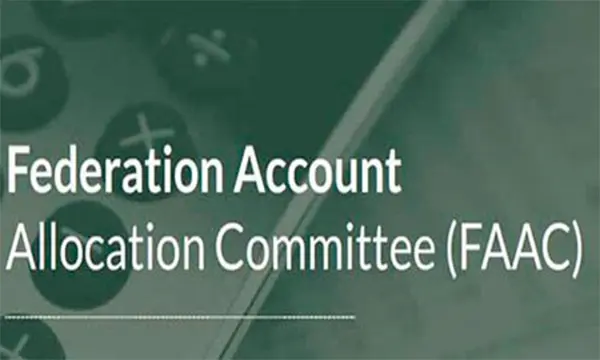
By Tony Obiechina Abuja
A total sum of N2.001 trillion, being July 2025 Federation Account Revenue, has been shared to the Federal Government, States and the Local Government Councils. The revenue was shared at the August 2025 Federation Account Allocation Committee (FAAC) meeting held in Abuja.
The N2.001 trillion total distributable revenue comprised distributable statutory revenue of N1,282. 872 trillion, distributable Value Added Tax (VAT) revenue of N640. 610 billion, Electronic Money Transfer Levy (EMTL) revenue of N37.601 billion, Exchange Difference N39.745 billion. A communiqué issued by the Federation Account Allocation Committee (FAAC) indicated that total gross revenue of N3,836.980 trillion was available in the month of July 2025. In a statement by Bawa Mokwa, Director of Press and Public relations of the OAGF, on Friday, total deduction for cost of collection was N152,681 billion while total transfers, interventions, refunds and savings was N1,683.471 trillion. According to the communiqué, gross statutory revenue of N3,070.127 trillion was received for the month of July 2025. This was lower than the sum of N3,485.235 trillion received in the month of June 2025 by N415.108 billion. Gross revenue of N687.940 billion was available from the Value Added Tax (VAT) in July 2025. This was higher than the N678.165 billion available in the month of June 2025 by N9.775 billion. The communiqué stated that from the N2,000.828 trillion total distributable revenue, the Federal Government received total sum of N735.081 billion and the State Governments received total sum of N660.349 billion. The Local government Council received N485.039 billion, while the sum of N120.359 billion (13% of mineral revenue) was shared to the benefiting State as derivation revenue. On the N1,282.872 trillion distributable statutory revenue, the communiqué stated that the Federal Government received N613.805 billion and the State Governments received N311.330 billion. The Local Government Councils received N240.023 billion and the sum of N117.714 billion (13% of mineral revenue) was shared to the benefiting States as derivation revenue. From the N640.610 billion distributable Value Added Tax (VAT) revenue, the Federal Government received N96.092 billion, the State Governments received N320.305 billion and the Local Government Councils received N224.214 billion. A total sum of N5.640 billion was received by the Federal Government from the N37.601 billion, The State Governments received N18.801 billion and the Local Government Councils received N13.160 billion.From the N39.745 billion Exchange Difference, the communiqué stated that the Federal Government received N19.544 billion and the State Governments received N9.913 billion. The Local Government Councils received N7.643 billion, while the sum of N2.643 billion (13% of mineral revenue) was shared to the benefiting States as derivation revenue. In July 2025, Petroleum Profit Tax (PPT), Oil and Gas Royalty, Electronic Money Transfer Levy (EMTL) and Excise Duty increased significantly while Value Added Tax (VAT)and import Duty increased marginally. Companies Income Tax (CIT) and CET Levies recorded decreases.

